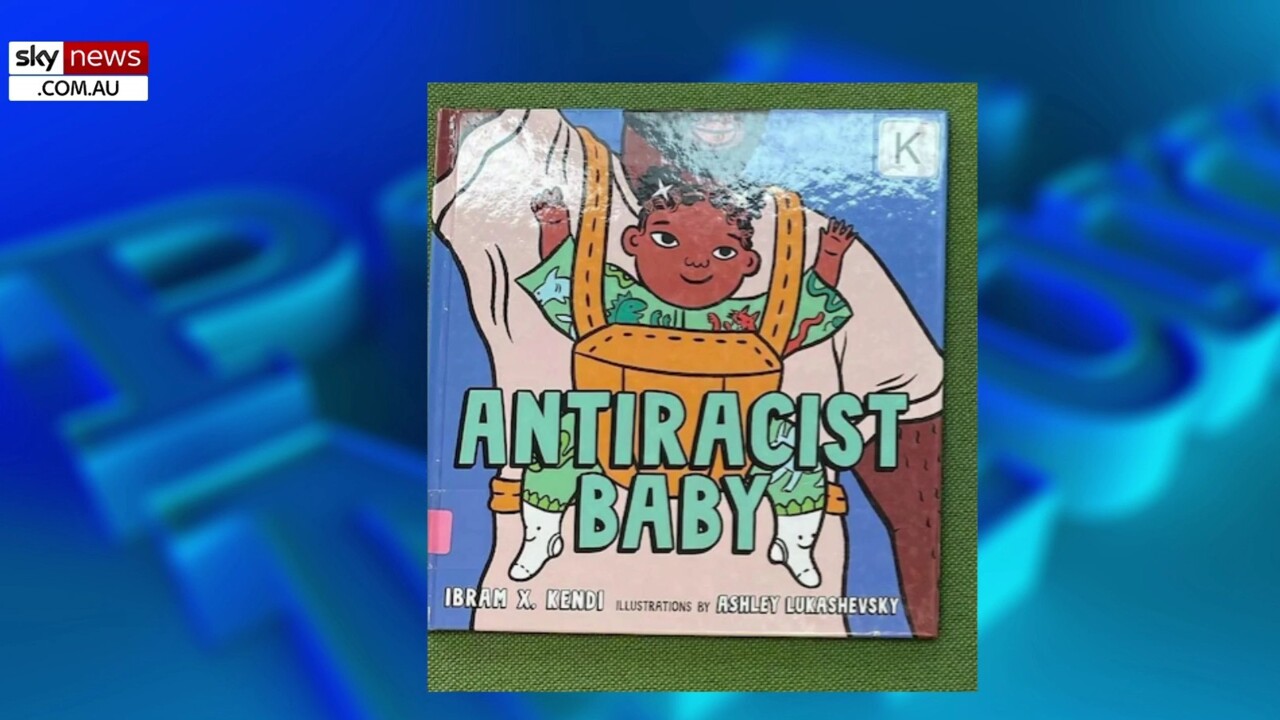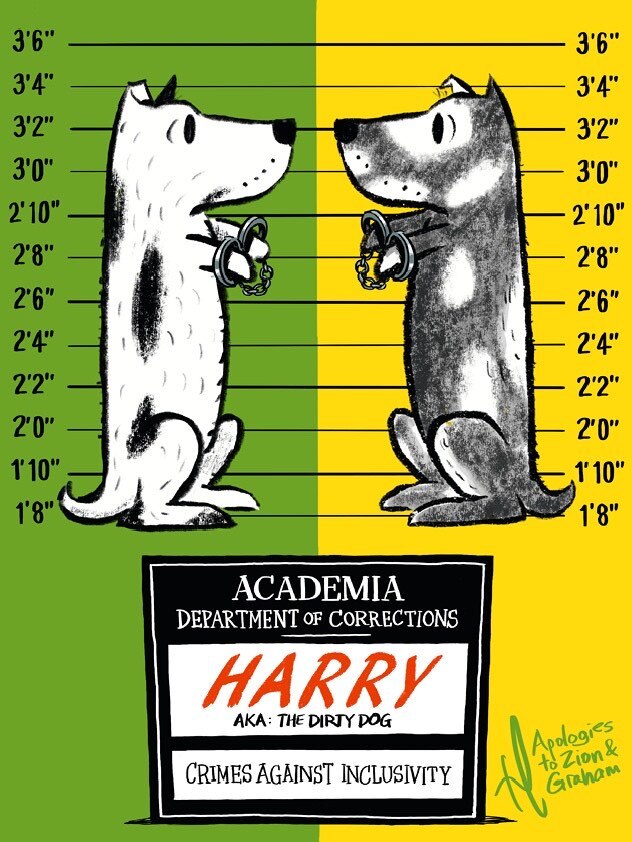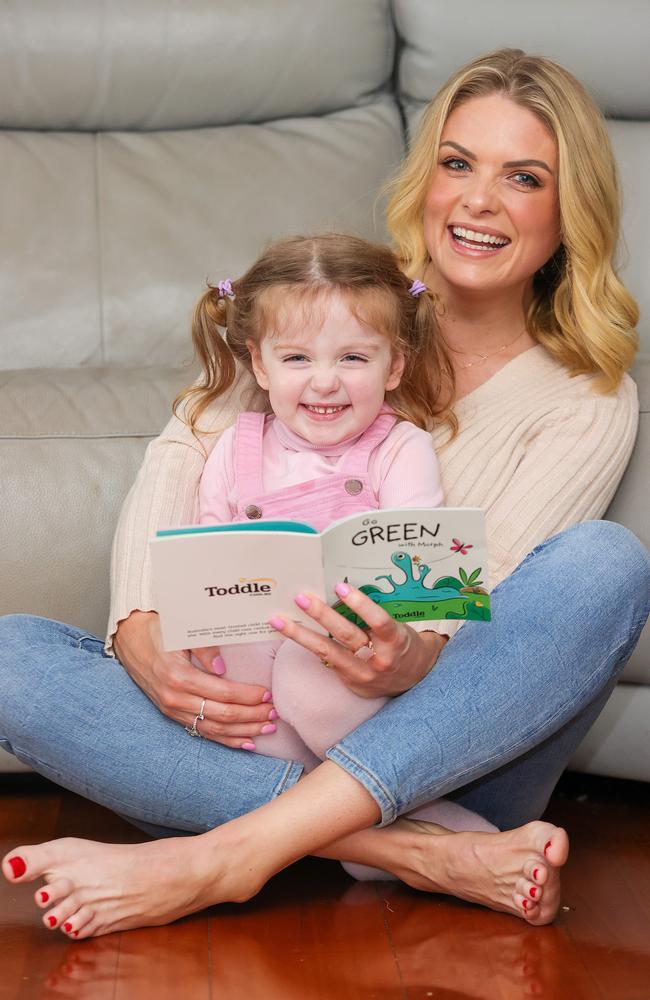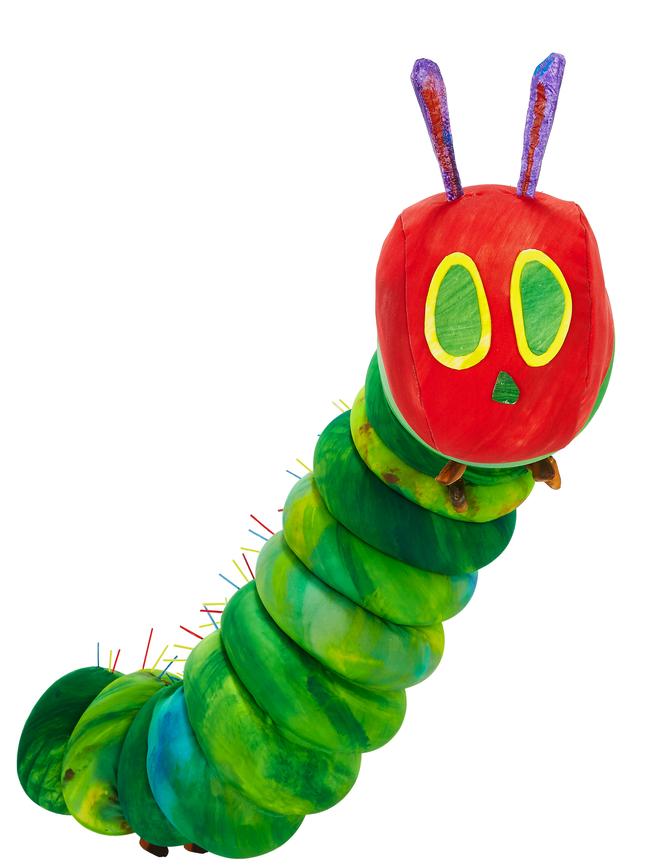Erin Molan: Storm over classic kids’ books is diversity gone mad
Remember classic books like The Very Hungry Caterpillar and Possum Magic? Well, some academics say your children should not be reading them. Erin Molan begs to differ.

Opinion
Don't miss out on the headlines from Opinion. Followed categories will be added to My News.
This probably won’t come as a surprise but I don’t often watch the ABC. I flicked it on while staying at a hotel with my nearly four-year-old daughter last week. She watched Play School as we got ready to head to the fabulous sights of Vivid.
There were three presenters, one of whom I immediately recognised. It was Kurt Fearnley, one of the greatest athletes this country has ever produced and one of my favourite people to interview. His personality is almost more impressive than his lightning speed.
There was another young man, cheery and bright, and a woman with dwarfism, Australian actress Kiruna Stamell.
We sat and watched for a good 20 minutes.
Eliza’s at the age now where asking questions is her favourite pastime. It’s almost impossible to get her to stop talking, which is a wonderful thing (most of the time).

She didn’t once bring up that the people on television looked different. That there was a man in a wheelchair or a woman who stood just over a metre tall.
There was nothing about what she was watching that stood out to her as being worthy of a question or remark.
The trio were great fun, entertaining and genuinely good at their jobs. There was nothing ‘token’ about this ensemble.
Earlier that day I’d hosted a fundraiser for the Salvation Army and a lovely lady in a wheelchair came over to us (Eliza was my very cute plus-one) to say hello.
I watched my daughter looking at her wheelchair, a little bit nervous, wondering if she might say something “inappropriate”. She didn’t.
She smiled at the lady, said “nice to meet you” (prompted by me, of course) and off we went.

We read together every night. Eliza seems to have inherited her mother’s love of books and it’s one of our favourite things to do.
She’s the proud owner of plenty of recently written tales, like my friend Sam Squire’s Princesses Wear Sneakers — about a princess who kicks butt and fights dragons.
She loves It’s Okay To Be Different by Todd Parr, which encourages acceptance and understanding.
She’s also currently pretty passionate about The Very Hungry Caterpillar.
This innocuously titled kids’ classic — that I used to love as a child too — has now been added to a list of books deemed “not diverse enough”.
Also included in this pile of seemingly dangerous literary works are Possum Magic and The Rainbow Fish, and
Apparently the consumption of these titles has been determined by university academics to be “detrimental” to our kids.
That will almost do me. Almost.

Now far be it for me, as the mother of a healthy, able-bodied little girl, to make any assumptions as to how it might feel to be a part of a minority that isn’t always represented.
I can only imagine it would be challenging, and the desire for more visible diversity and inclusion would burn incredibly strongly.
We all want our kids to feel like they belong, like they are special, and confident that they are worthy and valued members of society.
Nobody would argue against that, but what I do think is worth fighting for is the right to read my child a classic book about a hungry caterpillar without being told it “lacks diversity”.
We can embrace diversity, and the incredibly powerful recent movement of any and all children from multiple backgrounds featuring in the pages of kids’ books, without trying to demonise classics that are in no way offensive, divisive or hurtful — and I don’t need a doctorate from a university to know that reading and enjoying Possum Magic isn’t hurting anyone.
My little girl loves We’re Going On A Bear Hunt (yes, that’s included too) and she also adores Little Nic’s Big World by AFL star and proud Fijian-Australian Nic Naitanui, which he wrote to celebrate people’s differences.
When academics take identity politics too far it hurts everybody.
It makes a lot of everyday Australians who care deeply about inclusion roll their eyes, and it damages a critically important movement that still has a long way to go.
When we focus on ridiculous things that don’t matter, we risk overlooking the things that really do.





